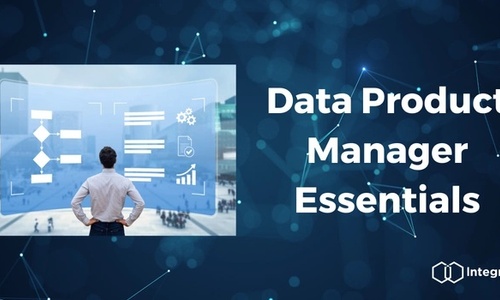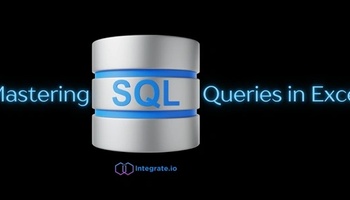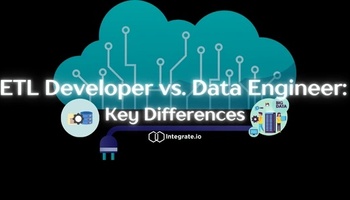Just a couple decades ago, human resource departments didn’t look for data product managers. The job didn’t exist because organizations rarely needed professionals to oversee data products and the teams that build them. They might have employed data scientists, but they didn’t need people focused on management more than they focused on data.
Data’s role in business success has become increasingly critical in recent years. Research shows that data-driven organizations can increase their earnings by 15 to 25%. As more companies adopt data products that give them better insights into trends, they need data product managers who can oversee product lifecycle management, communicate with cross-functional teams, and manage the stakeholders’ expectations.
Now that data product managers have become necessary for unleashing innovation and growth, more employers need to know how to select and train people for the job.
5 Key Takeaways:
- Data product managers are increasingly important to business success.
- Successful data product managers need to learn skills in data literacy, communication, leadership, and strategic thinking.
- Data product managers who know how to identify opportunities can push innovations while staying within budgetary restraints.
- Data product managers need to find ways to solve unique challenges.
- Data product managers should commit themselves to career-long learning.
Core Competencies of a Successful Data Product Manager
Data product managers rarely do intensive work with big data. Instead, they:
-
Oversee product development teams to align their work with business goals
-
Create product roadmaps that include opportunities for iterative, continuous development
-
Set key performance indicators (KPIs) to keep projects on track
-
Communicate progress – and, potentially, setbacks – to stakeholders
-
Know the skills their employees have so they can build successful product design teams
Reaching these goals requires a broad range of core competencies in data literacy, strategic thinking, communication, and leadership.
Technical Skills and Data Literacy
Although data product managers don’t need the deep technical skills of a data scientist, they do need some basic technical skills and exceptional data literacy. Managers typically oversee product teams so their projects can meet business objectives. They don’t need to understand every detail of what their team members do, but they must have enough technical skills to create an effective product strategy and review designs before submitting them to stakeholders.
Some technical skills data product managers should learn include:
-
Enough SQL knowledge to understand whether code will interact with a database correctly
-
Data analysis
-
Familiarity with data science techniques
-
Familiarity with other popular languages used in data analytics (e.g., Python, Scala, and JavaScript)
Data literacy involves more than understanding what a dataset means. Managers with excellent data literacy skills should know how to:
-
Review data sources to determine their validity before implementing them into the product development process
-
Use segmentation to pinpoint and meet diverse customer needs
-
Enhance data with visualization tools
-
Break down silos to create a single source of reporting truth
Strategic Thinking and Vision
Managers must also act as product leaders who encourage team members to do their best work. Since data scientists might not spend a lot of time thinking about the business landscape, data product managers need to communicate the importance of meeting unique pain points that affect end users.
Strategic thinking and vision can involve:
-
Reviewing market research to find opportunities for new products to reach their full potential
-
Identifying pain points that will drive innovation
-
Considering the adaptability of products to extend their lifecycles
Communication and Leadership
Data product managers often act as a bridge between data professionals and business leaders within an organization. That means they need strong communication skills to:
-
Share findings with stakeholders so they can make data-driven decisions
-
Explain market dynamics and market research so teams get funded to pursue essential projects
-
Create visualizations that help stakeholders gain valuable insights
-
Embrace cross-functional collaboration that involves multiple methodologies and objectives
Innovating with Data: The Data Product Manager’s Playbook
Building exceptional products isn’t all about innovation, but it plays a fundamental role in your success. Anyone can keep relying on existing products. It takes an innovative leader to push boundaries, discover opportunities, and find new ways to solve problems.
Identifying Opportunities
Identifying opportunities requires creativity and data-driven decision-making. It often starts with reviewing your data to find places where your team can innovate new features.
That’s not as easy as it sounds when you have diverse data sources and data types. An ETL platform can help by connecting all of your sources to a single location.
Once you have the information you need, gather your team members to brainstorm ideas. You’ll discard most of the ideas, but some of them will lead to noteworthy advancements.
Agile Methodology
The Agile methodology works well for data product teams because it embraces rapid development, transparency, cross-team collaboration, and an iterative approach that leads to greater user satisfaction.
Agile can sound a little chaotic, but it actually relies on careful planning. It only seems like a loose framework because you acknowledge that you can’t anticipate every challenge you’ll encounter during the development process. Instead, you release frequent updates that respond to issues as they emerge.
Stakeholder Engagement
Stakeholders take a broad view of business performance, so they rarely want to get involved in your team’s day-to-day operations. Still, the nature of their jobs often fosters a risk-averse mindset that can hinder innovation.
Continuous feedback and collaboration are the best ways to minimize stakeholder anxiety.
Use data visualizations that make your products’ benefits clear. For example, you might focus on metrics like time-to-market, user satisfaction, and return on investment.
Encourage stakeholders to communicate their thoughts so you know what to expect moving forward. If they have a specific concern, you want to know about it sooner rather than later.
Overcoming Challenges in Data Product Management
Data product management is relatively new, so you’ll probably run into some unexpected challenges during your career. Some challenges, however, come with the job.
Some of the top challenge data product managements face involve:
-
Balancing technical and business priorities to find a middle ground – without succumbing to mediocrity
-
Navigating increasing complicated data privacy and ethical considerations. If your company is based in the United States, you have a patchwork of regulations to follow. Any company that wants to work with European consumers, though, needs to follow the European Union’s tight regulations.
-
Managing expectations is difficult because non-technical stakeholders might have unrealistic beliefs about what today’s technologies can achieve – especially while staying within budgetary constraints. Set realistic goals and foster transparent communication across departments so everyone knows what they can expect from projects.
Future Trends and Continuing Education
Working as a data product manager requires continuous improvement. The best managers are eager to learn about emerging trends so their teams can become more effective and innovative.
How will you satisfy your thirst for knowledge?
Some well-known online education platforms have courses that can keep you current with the industry. Consider enrolling in courses like:
You should also follow industry leaders on social media platforms like LinkedIn, X, YouTube, and TikTok.
-
Barr Moses, co-founder & CEO at Monte Carlo
-
Ben Rogojan, aka Seattle Data Guy
-
Bruno Aziza, a data expert who’s currently a partner at CapitalG, an Alphabet growth fund
Conferences can introduce you to new concepts and the people pushing innovative ideas within their industries. Some of the top conferences include:
Also, look for local and regional opportunities to build connections with data professionals and other product managers.
How Integrate.io Helps You Become a Trailblazer in Data Product Management
Data product managers play essential roles in today’s data-driven business environment. Successful managers will learn diverse skills in areas like data literacy, leadership, and communication.
It’s a challenging – but exciting! – job that will only become more important over the next few decades. With so many resources available, there’s a strong chance that you can learn the skills needed to excel as a data product manager.
Integrate.io is a low-code data pipeline platform with a drag-and-drop interface. A common Integrate.io use case for product teams building data products is to use our 60-second CDC database replication to power their data warehouse, and then use our API Generation solution to expose the data from the data warehouse to the various applications.
Want to learn more about how Integrate.io can help you power your data proucts? Use our 14-day free trial to unleash the power of data. If you specific questions, please schedule an intro call with one of our experts.
FAQs
What is the primary role of a Data Product Manager?
Data project managers set expectations, oversee product development teams, and communicate results with stakeholders.
How does a Data Product Manager balance technical and business needs?
Data product managers should conduct ample research to identify pressing needs and talk to their teams about how they could feasibly satisfy those needs.
What are the emerging trends in data product management?
Emerging trends in data product management include using “as-a-service” pricing models, embracing remote and hybrid work, and learning skills so they can thrive in niche roles.
How important is data privacy for a Data Product Manager?
Data product managers should always make data privacy a priority. It’s often not enough to comply with regulations. Managers need to consider how they can use data ethically to protect sources.
What resources are recommended for continuous learning in data product management?
Data product managers should keep learning by taking online courses, following industry leaders, and attending conferences.










